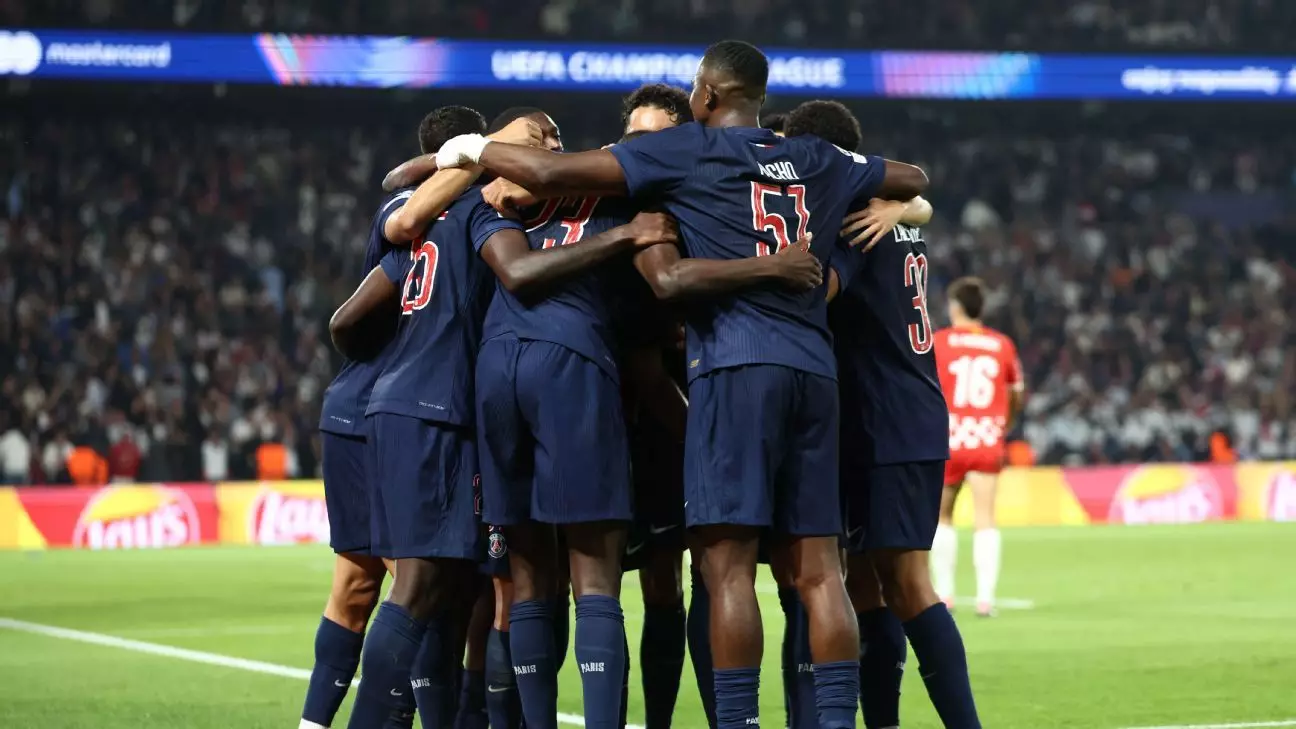Recent events at the Parc des Princes have sparked significant outrage within the world of football. Anti-gay chants directed at Paris Saint-Germain (PSG) supporters during their home game against Strasbourg have prompted strong condemnation from Ligue 1. As the fans prepare for an intense rivalry match against Marseille, such offensive behavior underscores a troubling culture that remains entrenched within sections of supporters’ groups. This incident highlights the urgent need for systemic changes within the sport to address discriminatory practices and promote inclusivity.
The Roots of Rivalry
The upcoming match against Marseille is not merely another fixture on the calendar; it represents the pinnacle of rivalry in French football. The animosity between Paris and Marseille runs deep, a sentiment exacerbated by historical successes and failures of both clubs. Adrien Rabiot, a former PSG player who controversially joined Marseille, became an unwitting target of these hateful slurs. His transition from PSG, where he made over 200 appearances, is viewed as a betrayal by some fans, fueling the ongoing vendetta.
Ligue 1 officials have expressed their disappointment, emphasizing that the occurrence of such discriminatory language is a direct affront to the league’s efforts to foster inclusivity and eradicate homophobia from the beautiful game. Their statement articulates a clear commitment to holding contributors of hate speech accountable, yet the effectiveness of past measures raises questions about the actual commitment to change.
A troubling aspect of this incident involves the reaction—or lack thereof—of both fans and stadium officials. Reports indicate that when the stadium announcer implored the crowd to cease chanting, he was met with boos rather than compliance. This response demonstrates a broader issue: how certain factions of packed stadiums can perpetuate and even celebrate harmful ideologies without accountability.
Moreover, the dilemma does not rest solely with the supporters. The involvement of PSG players in prior incidents, where they were filmed engaging in offensive chants, further complicates the narrative. Although the players issued public apologies, such actions breed a toxic environment that normalizes discrimination. The league’s previous disciplinary actions against players signal a pattern of behavior that fails to deter further incidents.
As Ligue 1’s disciplinary committee gears up to investigate this latest incident, the stakes are high. Last season’s penalties, including the closure of the Auteuil stand and the suspension of matches, reflect a tangible recognition of the problem. However, the ban on PSG fans for the upcoming match raises a critical question regarding safety and inclusivity at sporting events. With historical instances of violent clashes, this preventive measure seems necessary yet indicative of the pressing need to address the root causes of such rivalries.
While PSG continues to dominate domestically, their recent history, laden with controversies, reveals that success does not equate to moral rectitude. The shadow of past actions must not overshadow the collective potential of football to be a platform for unity and acceptance. As Ligue 1 endeavors to tackle discrimination head-on, it is imperative that all stakeholders—fans, players, and officials—commit to fostering a culture that abhors hate speech and champions diversity at its core. Only through vigilance and proactive measures can the sport safeguard its dignity and ensure a welcoming atmosphere for all.

